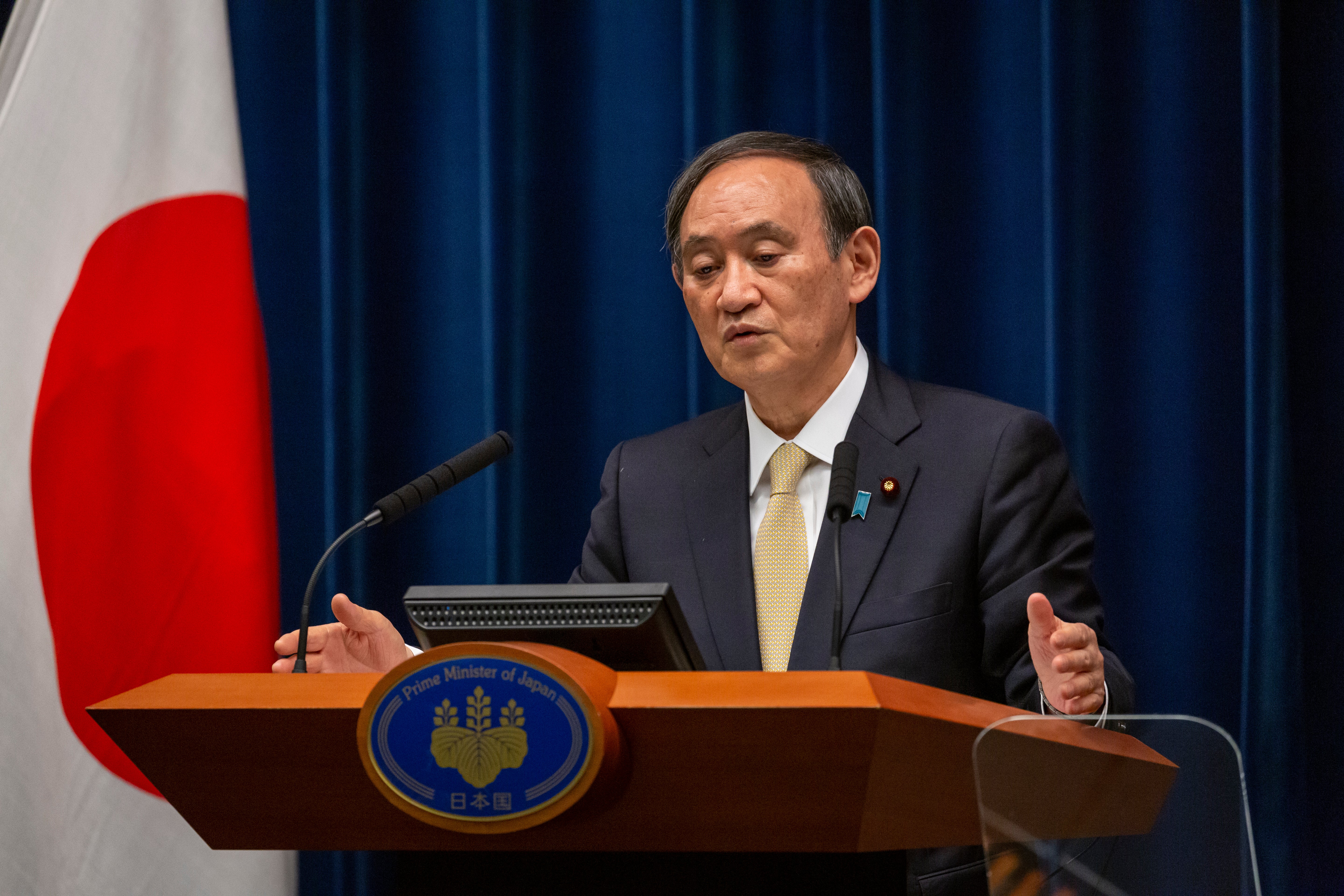Tokyo Olympics: I have never put Games before people, says Japanese prime minister amid Covid surge
Opposition members of parliament grilled prime minister Yoshihide Suga for hours about holding the Games under these circumstances after the country extended its state of emergency in Tokyo

Your support helps us to tell the story
From reproductive rights to climate change to Big Tech, The Independent is on the ground when the story is developing. Whether it's investigating the financials of Elon Musk's pro-Trump PAC or producing our latest documentary, 'The A Word', which shines a light on the American women fighting for reproductive rights, we know how important it is to parse out the facts from the messaging.
At such a critical moment in US history, we need reporters on the ground. Your donation allows us to keep sending journalists to speak to both sides of the story.
The Independent is trusted by Americans across the entire political spectrum. And unlike many other quality news outlets, we choose not to lock Americans out of our reporting and analysis with paywalls. We believe quality journalism should be available to everyone, paid for by those who can afford it.
Your support makes all the difference.Japanese prime minister Yoshihide Suga said on Monday that he has never “put the Olympics first”, as an opinion poll showed nearly 60 per cent of people in Japan want the Games cancelled less than eleven weeks before they are due to open.
Japan has extended a state of emergency in Tokyo and three other areas until the end of May and is struggling to contain a surge in Covid-19 cases, raising more questions about whether the Games should go ahead. Its vaccination rate is the lowest among wealthy nations.
International Olympic officials, Tokyo planners and Suga himself have insisted the Games will go on in “a safe and secure” way. Foreign spectators will not be allowed and planners issued an elaborate set of rules last month aimed at preventing coronavirus infections. But such arrangements have not eased public worries over the Games that were postponed last year as the coronavirus was spreading around the world.
A opinion survey conducted on 7-9 May by the Yomiuri Shimbun daily showed 59 per cent of respondents wanted the Games cancelled as opposed to 39 per cent who said they should be held. “Postponement” was not offered as an option. Another poll conducted at the weekend by TBS News found 65 per cent wanted the Games cancelled or postponed again. More than 300,000 people have signed a petition to cancel the Games since it was launched about five days ago.
Opposition members of parliament grilled Suga for hours about holding the Games under these circumstances.
In apparent acknowledgment of the public concern about holding the Games no matter what, Suga, when asked if the Games would go ahead even if infections spiked, replied: “I’ve never put Olympics first. My priority has been to protect the lives and health of the Japanese population. We must first prevent the spread of the virus.”
He repeated that the International Olympic Committee (IOC) has the final say on the Games and the government’s role was to take steps so they can be held safely. Several test events with foreign athletes have been successfully held, most recently on Sunday.
A visit by IOC head Thomas Bach scheduled for 17-18 May has been cancelled “in the light of the extension of the state of emergency last week and various circumstances we are facing,” Tokyo 2020 organisers said in a statement.
“We will continue to monitor the Covid-19 situation in Japan and other relevant factors and will re-arrange his visit to Japan as soon as possible.”
Media said the visit would likely take place in June, with one outlet saying that lifting the state of emergency would be a prerequisite.
An official in Okayama prefecture said they were considering keeping the Olympic torch relay off public roads when it passes through next week. Though other prefectures have taken similar steps, they were under states of emergency or other restrictions at the time.
Top Olympic official John Coates said on Saturday that while public sentiment in Japan about the Games “was a concern” he could foresee no scenario under which the sporting extravaganza would not go ahead.
On Sunday, Japanese tennis player Naomi Osaka said that even though she had waited her whole life to take part in the Olympics, the risk of holding the Tokyo Games should be carefully discussed.
The Games are set to open on 23 July and run until 8 August.
Reuters
Join our commenting forum
Join thought-provoking conversations, follow other Independent readers and see their replies
Comments